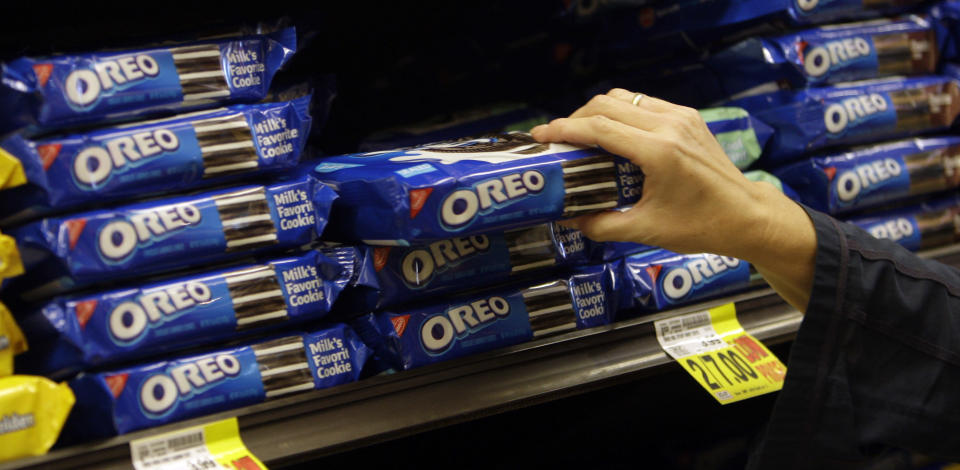90 percent of Americans confused by 'use by' dates on food
Ninety percent of Americans say they've prematurely discarded food because they misinterpreted the "sell by," "use by" and "best before" dates on products, and the confusion is costing consumers billions, a new study finds.
According to the study, conducted by the Natural Resources Defense Council and Harvard Food Law and Policy Clinic, many Americans incorrectly assume the date stamped on packaged food indicates when it will go bad instead of what it really is — a suggestion by the manufacturer of peak freshness.
The current system of expiration dates is misleading, the researchers say.
“Expiration dates are in need of some serious myth-busting because they’re leading us to waste money and throw out perfectly good food, along with all of the resources that went into growing it,” Dana Gunders, an NRDC staff scientist, told the Los Angeles Times. “Phrases like ‘sell by,’ ’use by,’ and ‘best before’ are poorly regulated, misinterpreted and leading to a false confidence in food safety.”
According to a survey by the Food Marketing Institute cited by researchers, such confusion leads nine out of 10 Americans to needlessly throw away food. The survey found 90 percent of Americans "at least occasionally throw food away prematurely because they mistakenly interpret the date label to mean their food is unsafe" — and 25 percent say they always discard food on or before that date.
The researchers blame "a lack of binding federal standards, and the resultant state and local variability in date labeling rules" for the inconsistency in date-labeling practices, "including whether manufacturers affix a date label in the first place, how they choose which label phrase to apply, varying meanings for the same phrase, and the wide range of methods by which the date on a product is determined."
In other words, "it's a mess," Gunders wrote in a post announcing the report. "And that mess is leading to a whole lot of perfectly good food going to waste."
In 2012, an NRDC study found as much as 40 percent of the country’s food supply goes uneaten. The cost of that wasted food? Roughly $165 billion, including $900 million in "expired" food. A family of four, the study found, spends an average of $455 a year on food it doesn't eat.
The researchers recommend making "sell by" dates invisible to the consumer, and have the food industry establish a standard, uniform labeling system.
In the meantime, consumers should educate themselves about food safety and "demystify your refrigerator."



